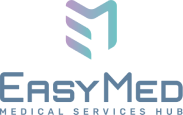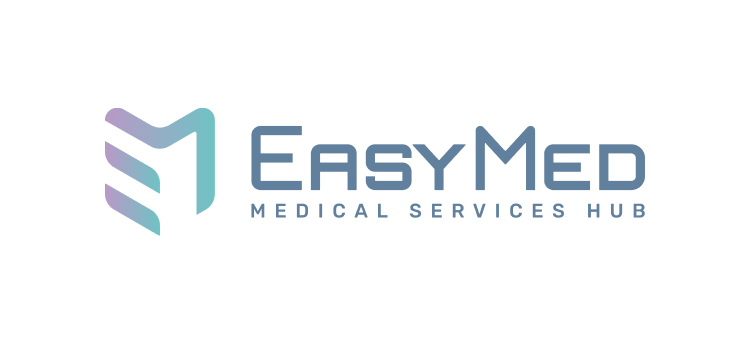
Kidney ultrasound
Renal ultrasound (renal ultrasound) is a safe diagnostic method that uses ultrasound waves to create detailed images of the kidneys and surrounding tissues. It is completely safe and suitable for patients of all ages.
Дополнительные процедуры:
- Лабораторный анализ мочи
- Элемент списка #2
- Элемент списка #3
Ultrasound of the kidneys with EasyMed
EasyMed specializes in organizing fast and convenient online appointments for kidney ultrasound examinations in leading medical centers in Israel. The collaboration with EasyMed gives patients access to advanced ultrasound technologies and the experience and knowledge of leading urologists and nephrologists. And all this without long queues and time.
In cooperation with EasyMed, each patient can be sure that they will be able to make an appointment quickly and smoothly with the best Israeli specialists for kidney ultrasound and other examinations.
Indications for renal ultrasound
Ultrasound examination of the kidneys is recommended in the following cases:
- Acute and chronic low back pain: Pain in the kidney area can signal a variety of diseases, from stones to infections.
- Changes in urine laboratory values: Changes such as elevated levels of protein, blood, or unusual cells in the urine may indicate inflammation, infections, or even kidney tumors.
- Edema and high blood pressure: Abnormal kidney function can lead to fluid retention in the body, causing edema and hypertension.
- Suspected cysts, tumors, or other growths: Ultrasound can determine suspicious growths' size, shape, and structure.
- Monitoring of kidney health in chronic diseases: Diseases such as diabetes or hypertension require regular monitoring of kidney health.
- Evaluation of the kidneys after injuries: Ultrasound checks for damage after blows or falls.
Renal ultrasound is a non-invasive and safe examination method that can be performed on patients of any age.
Importantly! Ultrasound of the kidneys is recommended at the slightest suspicion of abnormalities in their functioning since early diagnosis can prevent the development of serious diseases.
Preparation for the procedure
Preparation for kidney ultrasound plays a critical role in ensuring accurate results. It includes several key aspects to consider.
- Dietary recommendations: 3-4 days before the examination, foods that contribute to gas and bloating should be excluded from the diet. Such products include legumes, fresh vegetables and fruits, brown bread, and dairy products.
- Drinking Regimen: Maintaining a normal level of hydration is necessary. You should drink enough water on the ultrasound day, especially for patients with kidney stones.
- Fasting: Refraining from eating 6-8 hours before the procedure is recommended to avoid the formation of gas in the intestines, which can interfere with the examination.
- Medication preparation: Sometimes, your doctor may recommend taking medications to reduce gas (such as activated charcoal or enzymes).
There are certain peculiarities of training for women. Women are advised to undergo an ultrasound in the first half of their menstrual cycle unless there are urgent indications, as this allows for more accurate results.
Importantly! An EasyMed specialist will inform the patient about the necessary actions and restrictions before the ultrasound. The doctor’s recommendations regarding the preparation for the ultrasound should be addressed, as this may lead to the need to repeat the procedure and, as a result, to a delay in diagnosis and treatment.
How is an ultrasound of the kidneys performed?
- Preparation for the procedure: The patient is asked to lie on a special medical table. Usually, the process is started in a prone position. Still, the doctor may ask you to roll over on your side or take a different position for better visualization.
- Gel application: A special gel is applied to the lumbar area, which improves the contact between the ultrasound machine transducer and the skin, reducing the air gap.
- Using the transducer: The doctor gently slides the transducer over the skin in the kidney area. The ultrasound waves are converted into images that are displayed on a monitor.
- Image analysis: The doctor analyzes the images obtained in real-time, assessing the size of the kidneys and the presence of cysts, stones, tumors, or other abnormalities.
Diagnostic Capabilities of Renal Ultrasound
- Assessment of the size, shape, and position of the kidneys: Ultrasound can detect abnormalities in the development of the kidneys, such as dystopia (misposition), hypoplasia (underdevelopment), or agenesis (absence of the kidney).
- Detection of structural changes: Ultrasound effectively detects the presence of cysts, stones, tumors, and other neoplasms and allows you to assess their size, structure, and impact on kidney function.
- Kidney blood flow test: Doppler ultrasound can assess blood flow in the renal arteries and veins, which is important in diagnosing conditions such as renal artery stenosis or renal vein thrombosis.
- Diagnosis of inflammatory processes: Ultrasound helps detect signs of pyelonephritis, glomerulonephritis, and other inflammatory kidney diseases.
- Monitoring after kidney transplantation: Ultrasound is used to monitor the condition of the transplanted kidney, including to detect organ rejection.
Importantly! This method is extremely important for regularly monitoring chronic kidney disease, as it allows you to monitor the progression of the disease and assess the effectiveness of therapy.
Contraindications to the procedure
Ultrasound examination of the kidneys is one of the safest diagnostic methods, and the number of contraindications to it is minimal. But there are some circumstances in which an ultrasound of the kidneys may not be appropriate or requires special care:
- Presence of open wounds or skin diseases in the scan area: In cases of severe skin lesions or unhealed wounds in the lower back, ultrasound can be difficult or painful.
- Acute infectious diseases: In the case of acute infections, especially those accompanied by high fever, the procedure may be postponed until recovery.
- Recent surgeries in the abdomen or lower back: It is recommended to refrain from ultrasound for a while after surgery to avoid additional discomfort and complications.
Excessive gas in the intestines can also be a problem. Although it is not a strict contraindication, excess gas can significantly impair imaging quality, making the results less informative.
Importantly! If you doubt the possibility of performing an ultrasound of the kidneys, you should always consult your doctor. The doctor will be able to assess all the risks and decide on the appropriateness of the procedure based on the patient’s current health and medical history.
EasyMed – Your Reliable Diagnostic Assistant
When contacting EasyMed to make an appointment for an ultrasound of the kidneys, clients receive a guarantee of convenience and efficiency in planning the procedure. We recognize that kidney diagnostics are an important part of health evaluation. Therefore, our team pays special attention to choosing a clinic that meets general medical standards and specializes in urology and nephrology.
EasyMed cooperates with clinics that have advanced ultrasound diagnostic technologies, which allows us to ensure high image accuracy and quick interpretation of results by specialists.
Our team does not just provide intermediary services for quick appointments for medical examinations and consultations; we offer a comprehensive approach that includes follow-up support for clients, including assistance in interpreting the results and planning further treatment or follow-up.
Want to make an appointment for a review?
Fill in the following details
and we will contact you as soon as possible
Faq
Frequently asked Questions
We provide personalized healthcare services. Our main goal is to provide you with a quick appointment for the necessary medical examination or consultation with a doctor.
There is no need to wait several months: with us you will get to the right specialist in the shortest possible time.
Waiting times depend on the complexity of the procedure and the doctor’s profile. We can make an appointment with some specialists within 24 hours. For complex procedures, the waiting period of which reaches several months, you will be treated with us within 2-3 weeks.
There are a number of procedures (for example, complex types of MRI) that the patient can wait about a year and a half. We can reduce this period to 3 months.
We cooperate with leading specialists in various fields, as well as with top clinics and laboratories throughout Israel and abroad.
Our doctors use the latest treatment protocols and the most advanced technologies. The clinics we work with are equipped with modern equipment that provides the most accurate results.
Our partners are experienced professionals who have earned trust due to their experience, knowledge and professionalism.
We operate in all regions of Israel. Your appointment will be scheduled at the location most convenient for you.
The cost of services depends on the complexity of the procedure and the doctor’s profile. For accurate information and cost calculation, leave your details or call: 033083020
Yes, absolutely. Confidentiality and protection of our clients' personal information is one of our key priorities. We strictly adhere to all legal and ethical standards to ensure the maximum security of your data.
Our specialists will check whether in a particular case a refund from the insurance company is due. If yes, then after completing the procedure, a receipt will be sent to the insurance agent, who, in turn, makes a request to the insurance company to return the amount due to the patient for the procedure completed.



